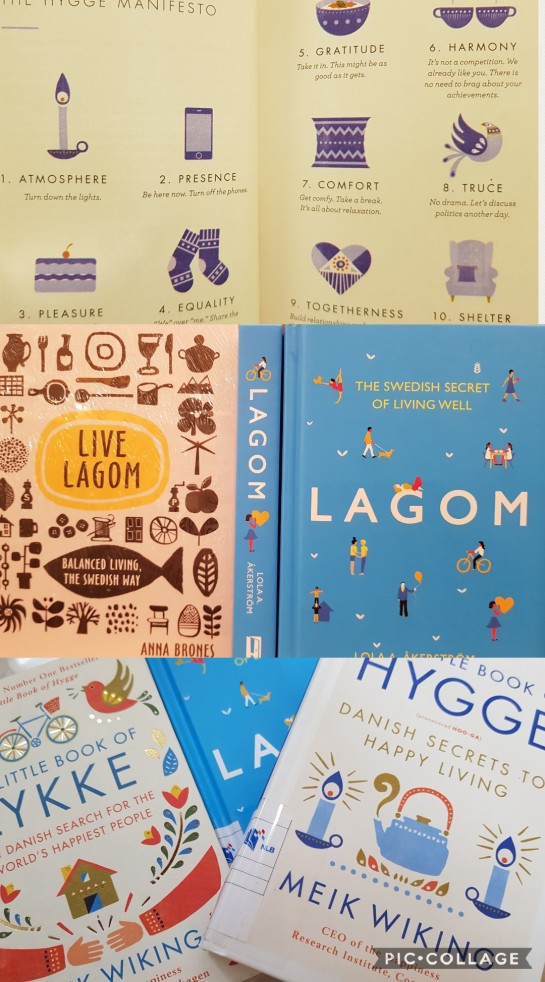Musicians look at notes and hear the music in their heads. I look at happiness data and hear the comforting sounds of lives well lived. The joy, the feeling of connectedness and the sense of purpose.
– Meik Wiking, CEO of the Happiness Research Institute, Copenhagen
I like his second book much better “The Little Book of Lykke”– The Danish Search for the World’s Happiest People. I was nearly turned off by a little quote that everything runs smoothly in Denmark. Four years ago, one train did arrive 5 min late. The passengers each got a letter of apology from the prime minister and a designer chair of their choice as compensation. I am not running down Danes when I question that everything runs smoothly. Coming from Singapore where things generally run smoothly, .. yet not everything. Certainly not our public transport which we made the mistake of privatising at the advice of consultants. Japan though, their public transport is indeed the most effecient in the world, has one of the highest suicide rates in OECD countries. Books on why the Japanese live long lives do not address this dark side of Japan.
There are many beautiful stories in the book looking at countries like Brazil which is overcrowded yet is relatively happy, #22. Most Brazilians consider themselves kind and happy people who know how to have fun. Its true that the Brazilians I know are more helpful and smiling than the Danes I know. (Not the most scientific approach). But perhaps if we are moving towards a more gracious society, we have more to learn from Brazil. On second thoughts, 12hrs to Copenhagen is better than 48hrs flight to Rio.
Pursuit of happiness
Why this fixation on Happiness you may ask? The author lost his mother when she was 49years old, to depression. I live in a country that witnessed the biggest progression in a lifetime yet people are very unhappy. I know people above 70yrs old who experienced starvation under British colonial days, yet are very unhappy today despite relatively high standards of living and peace and children who visit them weekly and support them financially.
My own take of the reason why Denmark and most of the Nordic countries have happiness is
The law of Jante
Conspicuous consumption is criticised. They dont like boastful people who flaunt their success. Decouple wealth and well-being. Read Michelle McGagh’s “The No Spend Year: How I Spent Less and Lived More“. Go for walks and free art exhibitions.
Value of Free Time
I like this book very much. I think that the reason why Denmark is the happiest nation among the OECD countries is because they value happiness as a way of life. They value free time and not embarrassed that they are taking time off work to exercise and be outdoors.
They take care of mental health seeking treatment when needed and not be embarrassed.
Be with people
But mind your own business. Do not worry about what others think of you or what others are doing to accumulate wealth. I doubt Danish mothers compare results of their children or other people’s children.
They are cozy and value mental resilience, connecting with others and not complaining.
Do not complain
Complaining is not the national sport. Give others a break. They dont need to live up to your expectations.
Complaining doesnt make you look smart or look self sacrificial. Suffering doesnt make you a martyr.
Be authentic and Mind your own business
Meik Wiking admits that Danes do not go around wearing masks. You cant tell that they are happy judging from their stony stares. They do not pretend or have a need to keep up with the Joneses.
A friend once told me how Japanese mothers get calls from teachers if they send their kids to school with plain and non-creative lunchboxes. Even lunchboxes are sources of comparison and not just means of healthy eating.
Relieve yourself from others’ expectations.
As the song goes, “haters gonna hate”. Complainers are going to complain. Especially when you live in a society where people have no qualms giving advice to others which they don’t heed themselves. People who dont mind their own business.
The English have a saying for this ” People who live in glass houses shouldnt throw stones”.
This second book Lykke is certainly a keeper. I cant wait to try out more suggestions from the book and watch the French film Amelie. I have started lighting candles especially at 6am when I wake up looking forward to my warm cup of Arabica coffee brewed in my 12yr old Philips machine.





